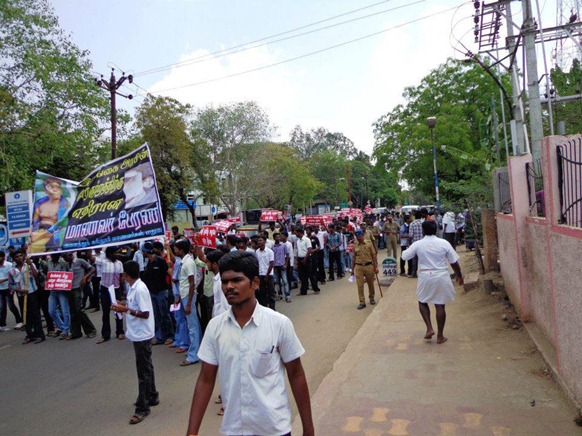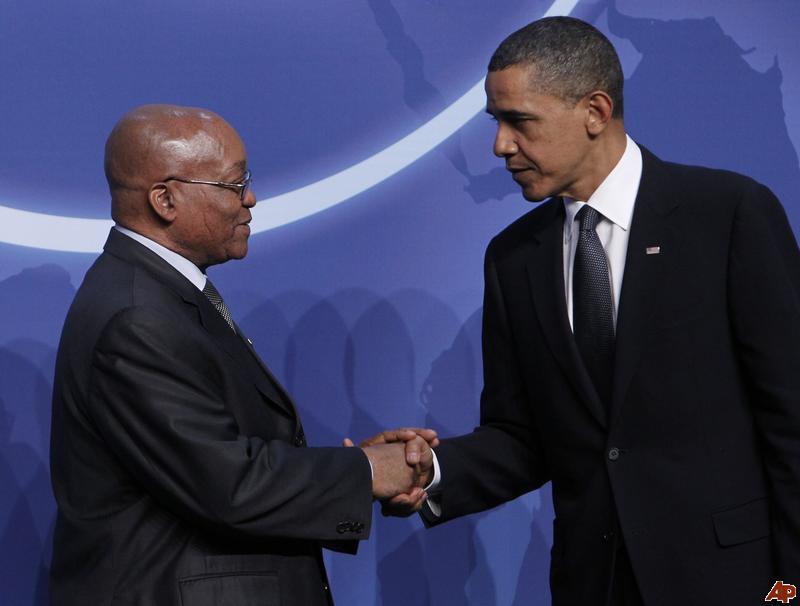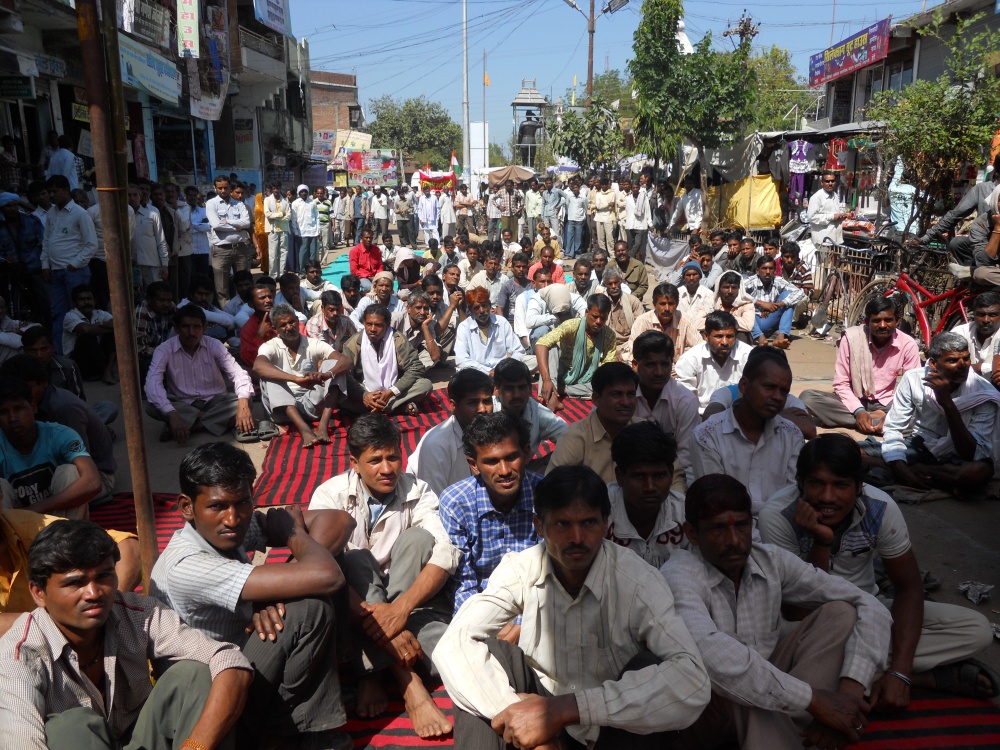India
Capitalism, sexual violence and sexism

For more discussion on feminism, click HERE

Floods in Mozambique have worsened.
By Bobby Peek
Human Rights Council resolution on Sri Lanka crimes provokes huge protests

Student demonstration in Mathurai, Tamil Nadu, March 14, 201
BRICS: ‘Anti-imperialist’ or ‘sub-imperialist’?

South African President Jacob Zuma and friend.

Whose turn to carve?
March 18, 2013 -- In Durban, South Africa, five heads of state meet on March 26-27, 2013, to assure the rest of Africa that their countries’ corporations are better investors in infrastructure, mining, oil and agriculture than the traditional European and US multinationals. The Brazil-Russia-India-China-South Africa (BRICS) summit will also include 16 heads of state from Africa, including some notorious tyrants. A new $50 billion bank will probably be launched.
India: Two-day general strike shakes country; crackdown on working class follows

By Kavita Krishnan
February 27, 2013 -- Links international Journal of Socialist Renewal via Radical Socialist -- The dominant capitalist media narrative about the February 21-22 all-India strike called by the country's major trade union centres was one of "hooliganism" by workers and inconvenience caused to the "public". As is usual, the main demands of the striking workers found little space in the media’s discussion of the strike.
India: Kavita Krishnan on the new movement against gender violence
January 22, 2013 – Green Left TV – Indian

Mass protest against violence against women, India Gate, Delhi, December 23, 2012.
By the Radical Socialist organisation
India: Power of protest in the ‘rape capital’

Protesters from the All India Progressive Women's Association in Delhi, December 22-23.
India: 'Defend women’s right to freedom without fear! Ensure swift and sure punishment for rape!'

Demonstration in Jammu, December 20, 2012, in protest at the r
